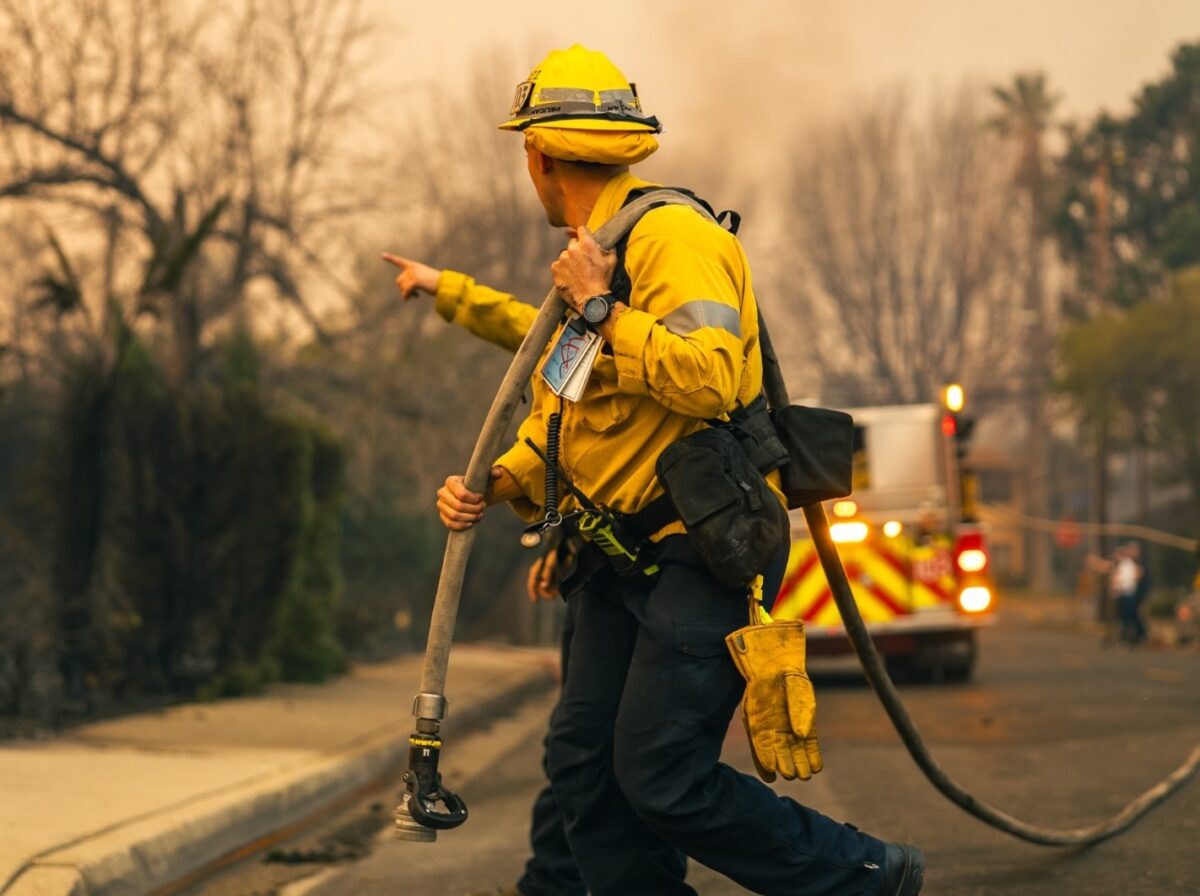What we’re watching: Weekly disaster update, January 21

We know all too well that disaster can strike anytime, anywhere in the world. Some disasters make headlines; others do not. Here at the Center for Disaster Philanthropy (CDP), we monitor the status of disasters worldwide and compile a list of the ones we’re tracking weekly, along with relevant disaster-related media coverage.
Here’s what we’re watching for the week of Jan. 21, 2025.
New or Emerging Disasters
Fire – Turkey: A popular ski resort erupted in flames early on Jan. 21, killing at least 76 people and injuring 51 people. The smoke and fire detection system failed at the twelve-story Grand Kartal Hotel in the Koroglu mountains, so hotel guests woke up to the fire by the smell of smoke. The fire is believed to have started in the restaurant, and several employees of the hotel have been detained.
Cyclone – Australia: Tropical Cyclone Sean, a Category 3 storm, unleashed torrential rain off the Western coast of Australia on Jan. 19, causing severe flooding in the city of Karratha. While the storm has since weakened and has not made landfall, millions of people were affected, several required rescue, and at least one person is missing. Thousands of customers were without power as of Sunday.
Previous/Ongoing Disasters
Wildfires – Los Angeles, California: More than 15,000 structures, including homes, schools and businesses, have been destroyed and 150,000 people have been forced to flee after fires engulfed in Los Angeles County in multiple locations. Since the Palisades and Eaton fires started two weeks ago, they have been 61% and 87% contained, respectively.
At least 27 people have died, mostly older people and people with disabilities who were unable to evacuate or waited for help that did not come in time. Many people are still missing.
To learn more about California wildfires, head to CDP’s 2025 North American Wildfires profile.
Note: If you were affected by the disaster, we encourage you to contact your local 211 to see what resources are available in your community.
Complex Humanitarian Emergencies – Colombia
Women and girls face the brunt of violence in conflict. However, they are rarely involved in decision-making around conflicts, peace and security matters. Sexual violence and other forms of gender-based violence (GBV) are frequently used as tactical weapons in war, aiming to terrorize and control populations. Displacement, instability and the destruction of facilities expose women and girls to even more exploitation and abuse. For the next round of Complex Humanitarian Emergency (CHE) updates, CDP will focus on how these crises affect women and girls.
In Colombia, migrants from Venezuela are especially vulnerable to sexual and physical abuse as they cross the border. Venezuelan migrant women, as well as Afro-Colombians, Indigenous women and others, are targets for sex trafficking, especially in Cartagena. Afro-Colombian women go missing at higher rates than other women in Colombia.
Because many Indigenous communities are matrilineal, land is usually inherited by women. Knowing this, armed groups who want to take over new territories will not negotiate with women but will communicate with male leaders in places women cannot go or late at night, circumventing women and taking their land.
Men commit violence against women, often with impunity. Both the Indigenous-led governments and the Colombian federal government fail to provide adequate protection and justice for women.
Tragically, due to relentless militarization, a lack of protection from domestic violence and sexual exploitation, as well as significant barriers to education and opportunity, suicide among Colombian and Indigenous women and children has increased in 2024.
In addition to the disasters listed above, we are actively monitoring the following disasters or humanitarian emergencies. For more information, see the relevant disaster profiles, which are updated regularly.
- Sudan Humanitarian Crisis
- Horn of Africa Hunger Crisis
- Gaza-Israeli Humanitarian Crisis
- Afghanistan’s Humanitarian Crisis
What We’re Reading
- People with disabilities are extra vulnerable in major disasters like wildfires, says Oregon advocate – Jefferson Public Radio: “People think evacuating is getting in the car, driving quickly away to safety. But many people with disabilities don’t have access to a car, or they can’t physically drive a vehicle. They’re totally reliant on others to transport them to safety. So just providing that notice is not an adequate way to ensure that we are saving the lives of people with disabilities in the way it needs to be done.”
- How do you clean up a fire disaster unlike any other in modern times? ‘It’s going to be an enormous undertaking’ – CNN: “This is going to be one of the biggest cleanups with regard to lithium-ion batteries,” the EPA official said. They need to be treated like unexploded munitions because of their volatility. Batteries damaged by fire or salt water can explode and can take a long time to put out because of the lingering chain reaction inside the battery – something that also causes them to occasionally reignite.”
- Is California becoming uninsurable? – Insurance for Good: “Looking back, 2024 was our hottest year on record, and it may turn out to be one of the coolest years in your children’s lifetimes–a sobering fact.”
A moment of hope … Scientists in Antarctica drilled an ice core two miles into the earth, extracting what is believed to be the world’s oldest ice. Air bubbles trapped in the ice act as little time machines and will reveal clues about Earth’s atmospheric past dating back 1.2 million years, helping to answer some of climate science’s most pressing questions. The ice may help scientists discover how glacial climate cycles have shifted since the mid-Pleistocene transition.
